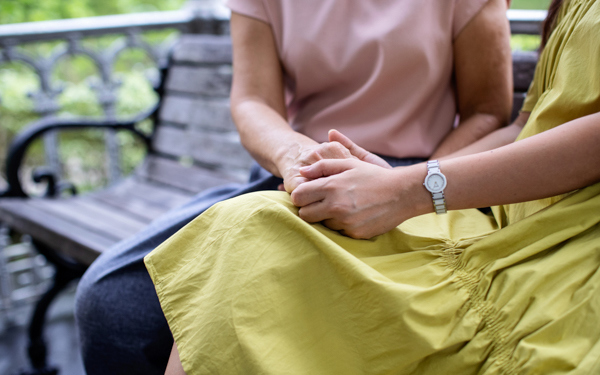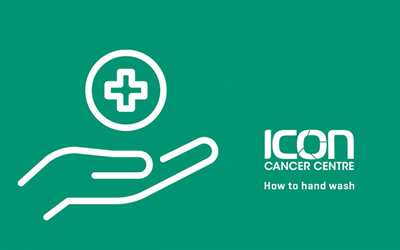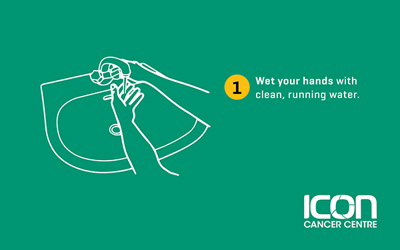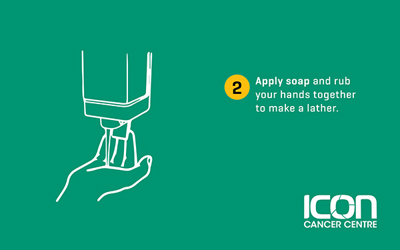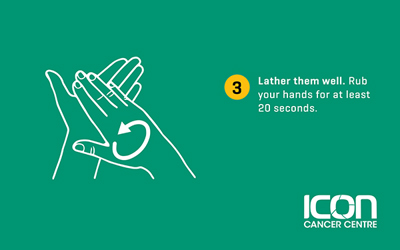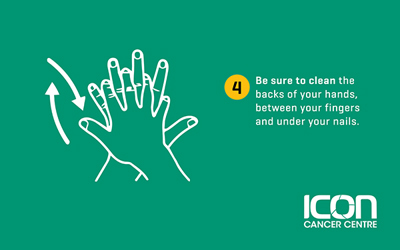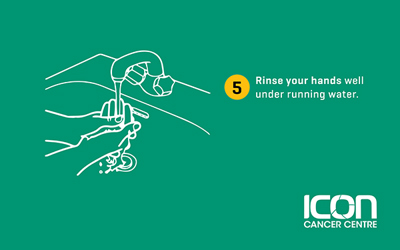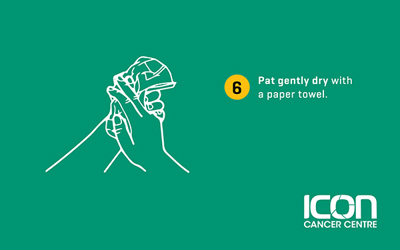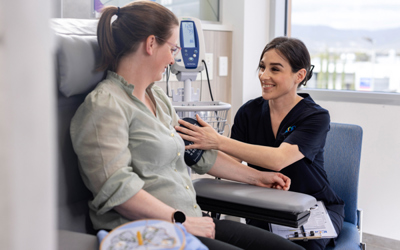Why do we wash our hands?
Through our hands we can very easily spread germs.
For example you may touch something that many other people have touched, such as a door handle, and then later touch your face without realising. This is just one way you can accidentally infect yourself with germs and viruses that can make you sick. Hand hygiene is the most important way to avoid the spread of harmful germs and prevent infections.
If you have received a cancer diagnosis or are undergoing cancer treatment, you may have a weakened immune system. This leaves you more vulnerable to general infections, which can result in:
Illness
Admission to hospital
Slower recovery
Emotional distress
How do germs spread?
Germs can spread from other people or surfaces when you:
Touch your eyes, nose and mouth with unwashed hands
Handle or eat food and drinks with unwashed hands
Come into contact with a contaminated surface or object
Blow your nose, cough or sneeze into your hands and then touch other people’s hands or surfaces
How should I wash my hands?
If your hands are visibly dirty, it is very important to wash your hands thoroughly with soap and water for at least 20 seconds, and then dry your hands. An easy way to time this is to sing Happy Birthday twice.
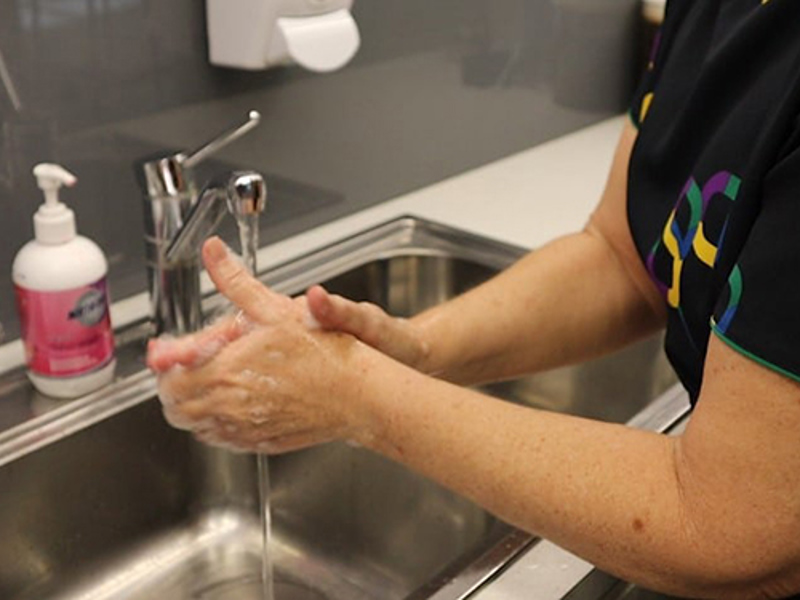
When your hands are visibly clean, you may like to wash your hands using soap and water or use an alcohol-based hand rub (also known as hand sanitiser). Hand sanitiser is only effective when your hands are visibly clean.
To wash your hands using hand sanitiser, you should:
Remove any jewellery
Use enough hand sanitiser to cover both of your hands, usually around half a teaspoon
Make sure this covers all surfaces of your hand including your palms, back of hands and between fingers, then rub your hands together until dry (about 20 to 30 seconds)
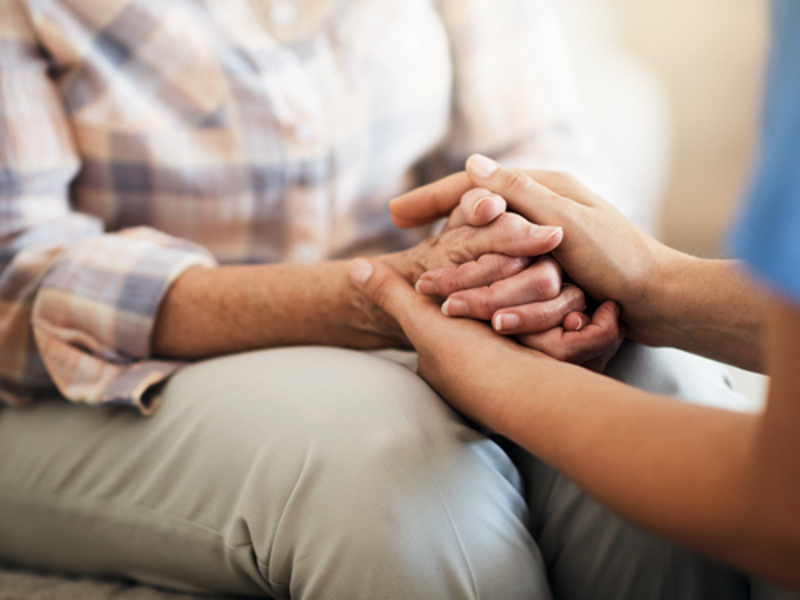
When should I wash my hands?
You should wash your hands before touching anything that should stay clean and after touching anything that may spread germs.
This might include:
When your hands are visibly dirty
After going to the toilet or helping a child go to the toilet (including changing a nappy)
After handling rubbish or chemicals
Before, during and after you prepare, handle or eat food
Before touching your face (such as to apply contact lenses or makeup)
After blowing your nose, coughing or sneezing
After touching an animal
After cleaning the bathroom or anything that could be contaminated with body fluids (such as vomit)
After you touch a common surface in a public space (e.g. shopping trollies and petrol pumps)
Before and after you visit someone who is unwell
Before and after you care for an injury (such as a wound or rash)
Looking after your hands
When you regularly wash your hands, sometimes your skin may become dry and cracked. This can then make your handwashing less effective against germs.
To care for your hands, you should:
Regularly use a protective hand cream or lotion
Choose a hand sanitiser or soap that is low in fragrance and preservatives
Use room temperature water when washing your hands with soap
Make sure your hands are completely dry after you wash them
If you think this may be a sign of an infection or allergy, we encourage you to discuss this with your doctor.
References
The content on the Icon Cancer Centre website is for informational purposes only and should not be considered medical advice. It is not a substitute for consultation with a qualified medical practitioner. For personalised medical guidance, please consult with your GP or another qualified healthcare provider.


